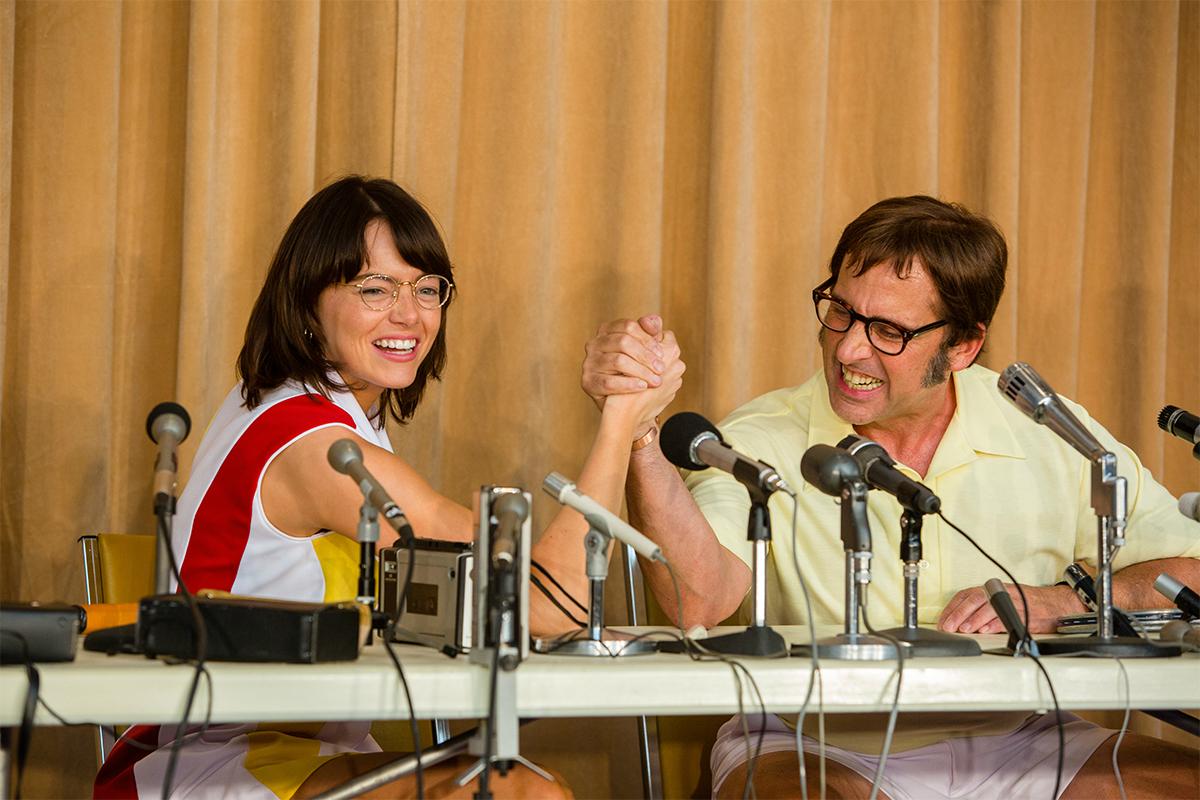Emma Stone says male co-stars have taken pay cuts so she can have equal pay
Actress stars as legendary tennis player and feminist champion Billie Jean King in Battle of the Sexes

Emma Stone has revealed that some of her male co-stars have taken pay cuts so she can earn the same as them.
In an interview for Out magazine with tennis legend Billie Jean King, whom Stone plays in the film Battle of the Sexes, the actress spoke about the upcoming movie and the gender discrimination that occurs both in Hollywood and the world of tennis.
"The parallels in this movie are pretty fascinating," Stone said.
"We began shooting in the spring of 2016, when there was still a lot of hope in the air, and it was very interesting to see this guy—this narcissistic, self-focused, constantly-stirring-the-pot kind of guy—against this incredible, qualified woman, and at the same time be playing Billie Jean, with Steve [Carell] playing Bobby Riggs.
"Obviously the way this has all panned out has been fascinating and horrifying, and it still feels like we’re in a bad dream, but those parallels make sense to me—the equal-pay issue makes a lot of sense to me."
"In my career so far, I’ve needed my male co-stars to take a pay cut so that I may have parity with them. And that’s something they do for me because they feel it’s what’s right and fair.

"That’s something that’s also not discussed, necessarily—that our getting equal pay is going to require people to selflessly say, “That’s what’s fair.” If my male co-star, who has a higher quote than me but believes we are equal, takes a pay cut so that I can match him, that changes my quote in the future and changes my life. And this is Billie Jean’s feminism, and I love it—she is equality, man: equality, equality, equality."
"We’re supposed to be happy with the crumbs," King said. "I talk about that in my speeches—that women deserve the cake, the icing, and the cherry on top as well, just like the men. So let’s go for it. But you also have to ask for what you want and need even if you get turned down. You have to figure out a way to ask."
Battle of the Sexes details how Riggs, a master self-promoter, had taken the stance that women made inferior tennis players and that even he, a retired player in his 50s, could beat out any of the top female players.
Riggs vs. King sparked a national debate and become a surprisingly important moment in the burgeoning feminist movement.
As Stone points out, the issues in Battle of the Sexes, along with those in modern tennis, draw some obvious parallels with Hollywood's ongoing problem with the gender pay gap, particularly as Wimbledon gets underway in the UK.
Last year tennis star Andy Murray criticised his peer Novak Djokovic for comments about the disparity in prize money for male and female tennis players.
Djokovic, who later apologised for his comments, argued that male tennis players deserved more money because they attracted a greater audience and more revenue for the sport.
He had been responding to then-Indian Wells chief executive officer Raymond Moore, who had claimed that women tennis stars should "go down every night on [their] knees and thank God that Roger Federer and Rafa Nadal were born."
"I think there should be equal pay, 100%, at all combined events," Murray said. "The timing of it [Moore's comments] was just so strange, right before a great women’s final, there were 16,000 people in the stadium waiting to see them play."
It will be screened in UK cinemas from 24 November 2017.
Join our commenting forum
Join thought-provoking conversations, follow other Independent readers and see their replies
Comments
Bookmark popover
Removed from bookmarks